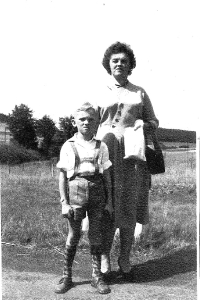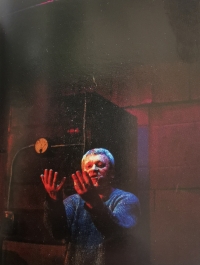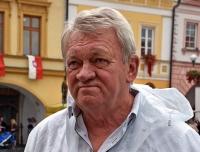During the period of Husák, everyone lived in a cauldron, where they suffocated until tender

Download image
Jan Milota was born on July 31, 1951 in Zdemyslice in southern Pilsen. Not long after that, he and his family moved to the nearby village of Seč. In his childhood, his parents often took him to the theatre, and his affection for the theatre world remained with him. After primary school, he started an apprenticeship and then joined Škodovka in Pilsen. After three years, he joined the Armabeton company as a driver for the construction of a power plant in Tušimice. The family settled in Klášterec nad Ohří, where the witness became a member of the local theatre association named Klas. He played the role of Emperor Charles IV for twenty years during the Imperial Days in Kadaň. After the revolution, he worked as an editor for regional television. In 2020, he published a book dedicated to the theatre association Klas. He is a laureate of the city’s award for his lifelong contribution to culture. In 2021, Jan Milota lived in Kadan and was still engaged in amateur theatre.





